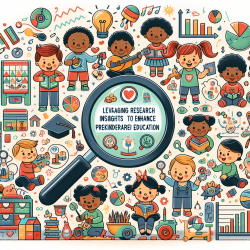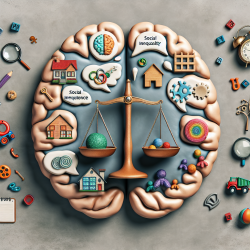Introduction
In the pursuit of enhancing early childhood education, the "Tools of the Mind" curriculum has been a focal point of research. This curriculum, rooted in Vygotskian principles, aims to equip children with cognitive tools that foster academic and behavioral competencies. Recent studies, including the comprehensive evaluation by Nesbitt and Farran (2021), provide valuable insights into the curriculum's impact and offer lessons for practitioners aiming to improve prekindergarten outcomes.
Understanding the Research
The study "Effects of Prekindergarten Curricula: Tools of the Mind as a Case Study" conducted a rigorous evaluation of the curriculum's effectiveness. Utilizing a cluster randomized control trial, the research compared 32 classrooms using the Tools curriculum against 28 control classrooms. The primary focus was on assessing improvements in children's academic, executive function, self-regulation, and social outcomes from prekindergarten to first grade.
Key Findings
- No significant positive effects were observed for the Tools curriculum on the targeted outcomes.
- Variability in implementation fidelity was noted, with some classrooms demonstrating higher adherence to the curriculum than others.
- General classroom processes, such as teacher-child interactions and classroom climate, were found to be crucial in influencing child outcomes.
Implications for Practitioners
Despite the lack of significant curriculum effects, the study underscores the importance of high-quality classroom interactions. Practitioners should focus on enhancing the emotional climate of the classroom, fostering social learning interactions, and ensuring high levels of child involvement. These elements have been associated with positive child outcomes, independent of the specific curriculum used.
Encouraging Further Research
The mixed results from the Tools of the Mind evaluation highlight the need for ongoing research into early childhood curricula. Practitioners are encouraged to engage in data-driven decision-making and to consider the broader context of classroom dynamics when implementing new curricula. Further studies should explore the long-term impacts of different curricular approaches and identify best practices for fostering optimal child development.
Conclusion
The "Tools of the Mind" curriculum offers valuable lessons for educators and researchers alike. By focusing on enhancing classroom interactions and continuously evaluating curricular impacts, practitioners can contribute to the advancement of early childhood education. For those interested in delving deeper into the original research, please follow this link: Effects of Prekindergarten Curricula: Tools of the Mind as a Case Study.










